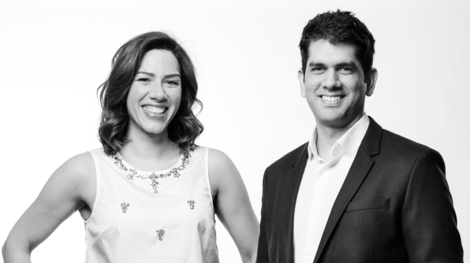Name of entrepreneurs: Nimesh Thakrar and Misa Zahar
Location: Central London
Date Launched: January 2016
Number of employees: 4
What does your business do?
Banneya London is a new multi-brand platform showcasing the best of contemporary jewellery designs, all customisable and made to order. We work with precious metals, diamonds and gemstones, with the UK’s leading craftsmen custom making each piece. Our fusion of digital fabrication technology and craftsmanship enables us to create the most intricate pieces on demand for our customers.
Where did the idea for your business come from?
Digital manufacturing technologies have played a major role in industries such as automotive and motorsport where I used to work. It was upon re-discovering them while working at Amazon Fashion and observing how they had matured from prototyping to final product that grabbed my attention.
I envisioned an exciting future where products would be made to order and to the exact style and specification that customers wanted. In fine jewellery I wanted to explore how the combination of technology, craftsmanship and e-commerce marketplace platforms could change the way pieces are made and sold.
How did you know there was a market for it?
My co-founder and I performed extensive market research, both by speaking to designers and customers in the market and desk research. We spoke in depth to leaders in the jewellery markets in London and in Paris and concluded that there was a growing market for customisation and that the timing was right.
Aside from the standardised, business approach to our research though, there was also a large portion of judgement, instinct and common sense involved in the decision to launch.
How did you raise funding, and why?
Bootstrapping was a necessary phase and although hard at times,it helped in the long run to develop a discipline with finance and an entrepreneurial ‘muscle’. Further down the line it made more sense to raise investment for Banneya to take us to the next stage.
Before even thinking about meeting with investors, however, the first stage was to get to a point where we were investment ready. Part of that was articulating the business in a crisp pitch deck – that took time to perfect as we have a multi-faceted business and luxury-tech is not exactly a common thesis in the investment community.
Describe your business model in brief.
Banneya London aims to transform how fine jewellery is made and sold with digital fabrication for precious metals. Our curated marketplace platform enables fine jewellery designers and brands to offer bespoke pieces using virtual inventory and on-demand production. We solve major issues around manufacturing and stock, while also satisfying the luxury customer’s growing appetite for unique pieces that no one else owns.
What was your first big milestone and when did you cross it?
The investment, which came through earlier this year, was an important milestone.
What advice would you give to other entrepreneurs?
There is so much advice out there now and a lot of it even conflicting! One piece of advice would be about advice itself and how you receive it. It’s important to remember to give different weights to the advice depending on who’s giving it and how much they know about your situation. Mix it into the pool of other advice and opinions then use your own judgement to decide what is best for you. I would also recommend to those starting out to have a lot of patience and flexibility – there are very few startups that are overnight successes and in this world of instant gratification they’re valuable traits to build.
Where do you want to be in five years’ time?
We would like Banneya to be an internationally recognised platform, synonymous with the best luxury design talent, high quality craftsmanship and amazing customer experience.
If you weren’t an entrepreneur, you would be…
Maybe a pilot as I love everything to do with aviation!
What is your philosophy on business or life, in a nutshell?
“Observe the masses and do the opposite” is bold piece of guidance I have always considered, although it’s how you interpret it. I wouldn’t go against the grain just for the sake or vanity of doing so, neither is it a hard and fast approach. But it’s often useful to take a step back and decide on a different route and be wary of the herd mentality.






